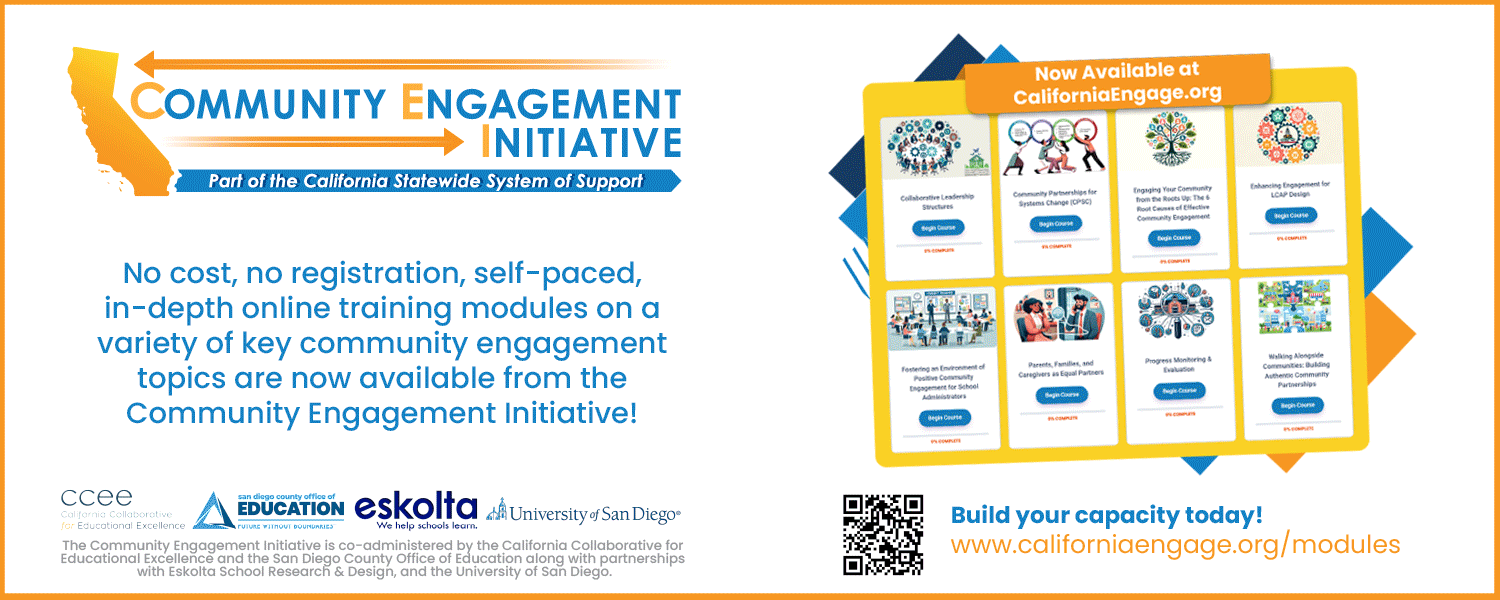Equity: Our Moral Obligation
School leaders deepen their commitment at ACSA’s 2024 Equity Institute
April 22, 2024
Equity warriors from throughout California attended the Equity Institute April 3-5, which also fell on the start of Arab American Heritage Month. University professors and researchers, teachers and administrators shed light onto the amazing work they do every day for California students, as well as the common challenges they each face. These challenges include facing deficit mindsets and frameworks about students, specific budget cuts affecting equity-focused positions, and deliberate attacks to the equity work and, at times, to equity warriors as well.
Educators gathered for table talks discussing various topics that ranged from ethnic studies implementation to book banning. The energy in the room was palpable as attendees shared experiences and recommendations.
Keynote presenter Patricia Brent-Sanco, Equity, Access, and Instructional Achievement director of Lynwood USD and chair of the state ACSA Equity Committee, opened the conference with a love letter, “Dear Equity Warriors, Are we teaching the way our students learn?” Brent-Sanco gave a history lesson of policies that intentionally widened access and achievement gaps. She also encouraged attendees to lead with love and compassion, not just for our students but also for themselves, especially as they do this challenging work.
ACSA Senior Director of Diversity, Equity, Inclusion, and Professional Learning Tracie Noriega shared the ACSA Equity Committee’s definition of equity: “Equity is the moral imperative to provide access and support for all marginalized persons to realize their personal best; liberating all through the eradication of Ideological, Institutionalized, Interpersonal, and Internalized forms of oppression.” Noriega also shared a snippet of the ACSA Equity Action Tool and Protocol, which was created to support educators with addressing issues of equity in a collaborative way.
Simone Charles, chair of this year’s Equity Institute planning committee and principal of Walt Whitman Continuation High School in LAUSD, moderated a panel discussion with university professors and TK-12 educators. Jerry Almendarez, superintendent of Santa Ana USD, told the audience that he supports the ethnic studies work in his district by having it as part of his evaluation.
Artnelson Concordia, Ethnic Studies coordinator for Santa Barbara USD, shared his experiences with centering youth voice in ethnic studies. Jane Margolis, a senior researcher at UCLA, discussed the ongoing need for more women and BIPOC people in the field of computer science, especially as artificial intelligence is being programmed and used according to implicit and explicit bias. Tonikiaa Orange, a director at UCLA’s Center X, described the coherence across all of the educator preparation programs and how it is necessary to support leaders at all levels with the knowledge and understanding of racial equity work. Angela Clark Louque, professor at Cal State San Bernardino, discussed strategies to recruit and retain a diverse faculty. She specifically spoke about “cluster hiring” to build in support from the start.At the heart of the work, is the students. Kimberly Hendricks-Brown, Equity Committee member and principal on special assignment in Fresno USD, moderated a five-member student panel. One of the panel members recently graduated from Walt Whitman Continuation School and now serves as a family liaison at the site. Two students on the panel are current students at Walt Whitman, and the other two students represented Lynwood High School. These brave scholars spoke honestly about what they needed to succeed. The broad themes that attendees took away were that of building relationships with students — having a supportive community within the school helps students feel seen. Students also need affinity spaces they can go to where other students and staff can truly understand all aspects of that culture. The panel recommended informing parents and students about college preparation much earlier than high school. Similarly, students need to have information early on regarding life skills such as financial literacy.
Luke Wood, president of California State University, Sacramento, closed out the conference with his keynote address on, “Advancing Equity in Climates of Resistance: Our Sacramento State’s Response.” Wood returned to his alma mater as president just nine months ago and embarked on a 100-day listening campaign with students, staff and faculty of the university. The keynote addressed the action steps resulting from the information collected. Wood acknowledged the practices that derail racial equity work, such as deficit perspectives and exhaustion. He discussed racial battle fatigue and how to counter it. Included in Sacramento State’s plan for advancing equity are creating more student pathways to support bold enrollment and retention goals; transforming hiring and support for underrepresented faculty, such as cluster hiring; implementing a research initiative that engages more BIPOC students as researchers alongside professors; creating an “Underground Railroad” for students with specific placements with professors that have a high rating of supporting African-American students; becoming the first Black Serving Institution in California, with the highest percentage of Black students among the CSUs; and last but not least, Sacramento State will have a Black Honors College focusing on Black history, life, and culture.
Attendee comments were consistent in that this conference was much needed. Equity warriors need a space to re-energize from racial battle fatigue. This conference served as an opportunity to remind us we are not alone and that we are stronger together, especially as we make “good trouble.”




